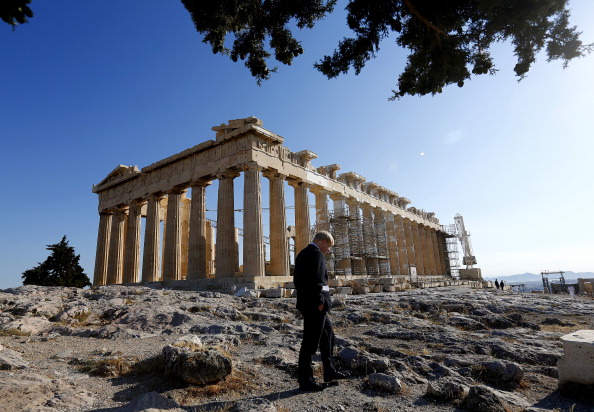Neither tragic nor hero, Boris is simply in thrall to the Brexit fates

When a Prime Minister who has spent his career leaning heavily on his classical education – peppering speeches with references to Pericles, the sword of Damocles, and how the EU subjecting Britain is like the Romans trampling over Carthage – loses his first four votes, his majority, and 23 MPs in the space of four days, the comparisons to Greek tragedy are inevitable.
And there is certainly a sense of tragic irony about Boris Johnson’s story lately. He has wanted this job all his life and was until recently being hailed as the man whom this moment of national crisis demanded. Then finally he gets his wish, only to be taunted as at best a disappointment, at worst a fraud.
Already, the conversation has moved on from events in Westminster to dissecting the Prime Minister’s character and arguing about whether his “hamartia” – the Greek term usually translated as “fatal flaw” that brings down tragic heroes – is ambition, arrogance, or just plain laziness.
But let’s take a step back, and consider what has actually happened.
Boris inherited the leadership of a country that is very much not business as usual. Unelected by the vast majority of the population, he stepped into the ruins of government left behind by a predecessor crushed to inconsequence by the incompatible demands of parliament, public and party.
The House of Commons maths that had backed Theresa May into an inescapable corner did not change when the Prime Minister did. Nor did the red lines of the chorus in this particular drama: the EU.
If Boris believed his own hype over the summer recess that he could succeed in two months where May failed in three years in striking a compromise acceptable to all sides, that was his folly.
But eyeing up the unappealing possibilities and determining that a radical gamble (proroguing parliament in order to sidestep obstructive MPs) was needed to break the stalemate was a logical move in a puzzle with no right answer.
It’s the same with the overwhelming sense of schadenfreude concerning chief aide and professional maverick Dominic Cummings.
Yes, it may be satisfying to watch a man so convinced of his own superior intellect see his master strategy unravel, but the plan – let MPs force a Brexit extension and then call an election, allowing Boris to run on a platform of “parliament versus the people” – was a sound one.
The probability that the Labour party, which has been clamouring for an election for years, would suddenly U-turn looked remote, as did the risk of so many long-standing Conservative MPs voting against their party on an effective motion of confidence and ending their political careers.
That miscalculation by Cummings is humiliating, but with the information available, it’s hard to see what alternative course of action would have been more successful.
Finally, it is not yet clear how much any of this actually matters.
The week has undeniably been disastrous for Boris – from losing his majority live on air when Phillip Lee crossed the floor to join the Liberal Democrats, to watching his own brother quit as a Conservative MP because he is “torn between family loyalty and the national interest”.
If he thought being Prime Minister would be easy for someone so apparently gifted in leadership, charisma and rhetoric, he has had a rude wake-up call.
But Boris ultimately only wants two things: for Britain to leave the EU by the 31 October deadline, and to win an election.
While none of them are easy, there are still options available to him for achieving the former – from ramming through a jazzed-up version of Theresa May’s deal at the last moment, to ignoring legislation passed by MPs to request an Article 50 extension and letting the battle play out in the courts.
As for an election, it is inevitable – the argument is over when and how. And when it does come, it’s not at all clear that this week’s parliamentary soap opera will have much bearing on how people cast their votes.
Of course, the timing matters, but the message that Boris is the man championing Brexit (and, by his definition, democracy) in the face of near-overwhelming resistance from an out-of-touch establishment is a powerful one. If he wins, the last few days will seem a distant dream.
And if he loses?
One mistake that people often make about Greek tragedy is to interpret “hamartia” as a character defect. In reality, it is less fatal flaw, more simple mistake.
The ancient tragedians were often concerned not so much with personal shortcomings, but with imperfect individuals placed in impossible situations, trying and failing to reason their way out of dilemmas far beyond their control. Many times their main fault is making what appear to be sensible decisions in the face of forces that are just too strong for a mere mortal to master.
The many-headed hydra of Brexit has already chewed up and spat out one Prime Minister – two if you count David Cameron, who resigned rather than take on the challenge.
If it defeats a third, perhaps we should view Boris as less the protagonist in his own personal tragedy, and more the victim of circumstances he should never have sought to control, who was never quite as powerful or as important in this ongoing story as he thought he was.
Main image credit: Getty